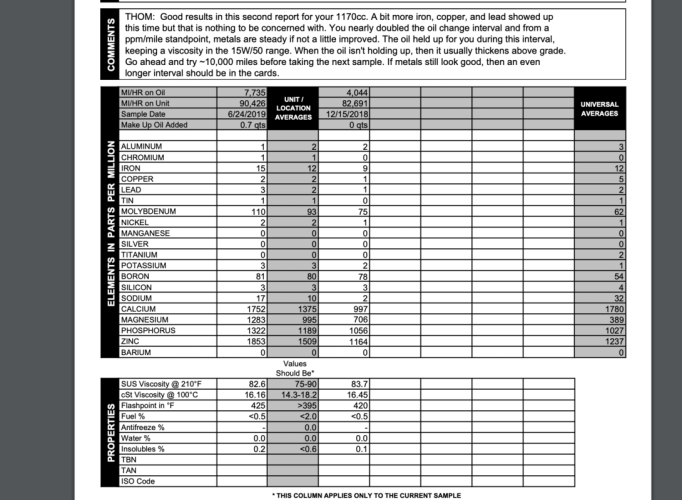Another oil debate? Nah – just for inquisitive minds.
Below is a the latest reports from Blackstone Labs on how my 2007 R1200RT is doing with it's engine oil. The bike now has about 93,000 miles on it. As with most BMW's, it's overly maintained...
The first oil analysis I ran was at the end of the season last year, it was comprised of just riding around MN.
The second oil report included a couple long days (800+ miles) in the summer heat of Texas. I'm glad to see that my oil of choice (Mobil 1, 15w-50) seems to be holding up. I currently use the Mahle oil filters from BeemerBoneyard.
After these results, I probably won't do an oil analysis every oil change, but maybe every other. Even though I'm getting good results pushing the oil beyond the recommend 6k interval, I probably won't push it all the way to 10k, but I won't sweat it if I'm beyond 6k either.
As I do more, I'll keep posting them here.


Below is a the latest reports from Blackstone Labs on how my 2007 R1200RT is doing with it's engine oil. The bike now has about 93,000 miles on it. As with most BMW's, it's overly maintained...
The first oil analysis I ran was at the end of the season last year, it was comprised of just riding around MN.
The second oil report included a couple long days (800+ miles) in the summer heat of Texas. I'm glad to see that my oil of choice (Mobil 1, 15w-50) seems to be holding up. I currently use the Mahle oil filters from BeemerBoneyard.
After these results, I probably won't do an oil analysis every oil change, but maybe every other. Even though I'm getting good results pushing the oil beyond the recommend 6k interval, I probably won't push it all the way to 10k, but I won't sweat it if I'm beyond 6k either.
As I do more, I'll keep posting them here.


